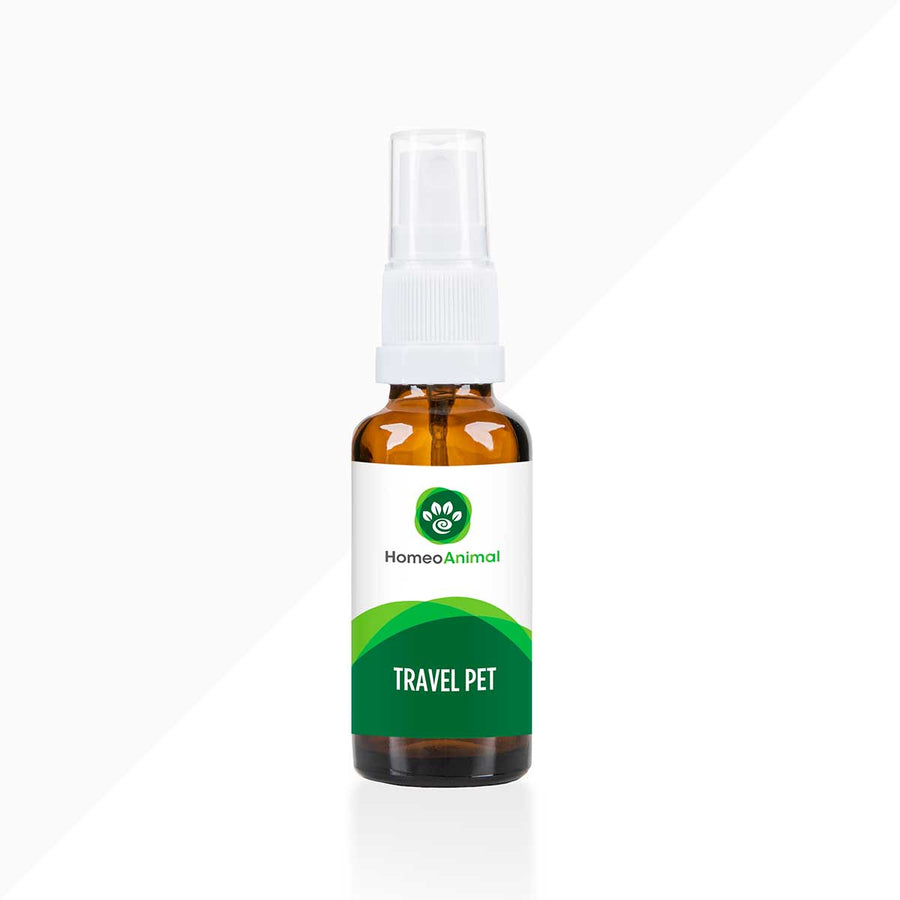Exotic Pets: Vet-Verified Pros and Cons Before You Buy
List of Contents
Dogs and cats may be the most common household pets, but they aren't the only options. Many adventurous pet owners are drawn to exotic animals for their uniqueness and appeal. From reptiles to rare birds, exotic pets offer a distinctive alternative to traditional companions.
As mentioned, an exotic pet is a non-domesticated animal not commonly kept in homes, such as reptiles, birds, or small mammals like ferrets. These animals often require specialized care, housing, and attention beyond what traditional pets need.
Choosing an exotic pet requires thoughtful consideration of emotional, ethical, practical, and legal factors. Understanding these aspects is essential to making a responsible and informed decision.
Top 5 Benefits of Owning an Exotic Pet

Exotic pets offer more than just novelty. They can be rewarding and enriching companions. Here are the top five benefits of owning an exotic pet that every potential owner should know:
#1. Fascinating companionship and educational value of exotic pets
Exotic pets are often captivating, displaying unique behaviors and complex social interactions. They offer a rewarding learning experience for owners interested in animal care and behavior.
The bond with an exotic pet often centers on mutual respect and shared space rather than traditional affection. These relationships can be deeply rewarding in unexpected ways. For instance, a parrot mimicking your laughter shows recognition and connection, offering a unique sense of satisfaction.
#2. Exotic pets are ideal for small homes or apartments
For city dwellers with limited space, exotic pets can be a practical alternative to traditional animals. Many small species, such as reptiles, birds, or small mammals, thrive in compact enclosures. This makes them ideal for apartments where keeping a dog or cat may not be feasible.
#3. They are low-allergen pet options
For those allergic to pet dander, many exotic species offer allergy-friendly companionship. Reptiles like snakes and lizards have no fur or dander, making them ideal for sensitive owners. Some individuals may also tolerate birds or hairless small mammals as low-allergen alternatives.
#4. Flexible care schedules with exotic pets
Many exotic pets are well-suited for owners with busy or unpredictable schedules. Unlike dogs, they don’t require frequent walks and can thrive with flexible daily routines. As long as interaction is consistent, the timing can easily fit around work or other commitments.
#5. Exotic pets live longer than you think
Some exotic pets, like large birds and certain reptiles, can live 20 to 40 years or more in captivity. Their extended lifespans make them appealing to owners seeking long-term companionship. This longevity may also reduce the emotional strain of frequently losing shorter-lived pets.
6 Key Challenges of Exotic Pet Ownership

While exotic pets offer unique rewards, they also come with specific challenges. Understanding the risks and responsibilities of exotic pet ownership is essential before committing.
#1. The high cost of exotic pet care
Exotic pets have specialized care requirements that differ greatly from those of traditional household animals. Their unique needs and complex routines can be challenging for unprepared owners.
The cost of caring for an exotic pet can add up quickly. Specialized habitats, climate control, unique diets, and exotic veterinary care often require significant financial investment.
#2. Limited access to exotic animal vets
Many veterinarians have limited training in exotic animal care, as these species are only briefly covered in most veterinary programs. As a result, finding qualified care for exotic pets can be difficult and sometimes costly.
Many exotic pets instinctively hide signs of illness, a natural behavior in prey species. This makes early detection difficult and can lead to serious health complications or death if treatment is delayed.
#3. Legal challenges of owning exotic pets
Laws regulating exotic pets can differ significantly at the federal, state, county, and city levels. Certain species may require permits or licenses, while others are strictly prohibited. Before getting an exotic pet, it’s crucial to research all applicable regulations to ensure legal and responsible ownership.
#4. Ethical and conservation issues in exotic pet ownership
Some exotic pets are illegally captured from the wild, fueling the global wildlife trade and endangering native populations. These practices often involve inhumane conditions, causing stress and suffering for the animals. Responsible ownership starts with understanding the ethical impact of how these pets are sourced.
#5. Zoonotic diseases and safety issues in exotic pets
Exotic animals retain their wild instincts and can pose safety risks, even in captivity. Many are carriers of zoonotic diseases that can be transmitted to humans. For example, up to 90% of reptiles may carry Salmonella, and macaques can transmit the potentially fatal Herpes B virus.
#6. Understanding exotic pet behavior challenges
Exotic pets are not fully domesticated and often retain strong wild instincts. As a result, their behavior can be unpredictable, especially as they mature. Animals like monkeys may become aggressive or difficult to manage, even if they were once tame.
Considering Homeopathy in Exotic Pet Care

Like all pets, exotic animals need specialized care to support their health and well-being. Working with a certified pet homeopath can be a safe, holistic way to address their unique needs. When used responsibly, homeopathy may complement traditional veterinary care and enhance an exotic pet’s quality of life.
Seeking natural, personalized care for your pet's health? Zumalka’s Certified Pet Homeopathic Consultation pairs you with certified pet homeopaths who assess your pet’s unique symptoms and recommend safe, customized remedies. Whether you own a dog, cat, or exotic animal, this holistic service supports long-term health and overall well-being.
Each consultation is tailored to your pet’s specific condition, lifestyle, and medical history. There is no one-size-fits-all solution. With professional guidance and follow-up support, you can confidently integrate homeopathy into your pet’s care routine. It's a convenient and compassionate option for proactive pet owners seeking alternatives to conventional treatment.
Is Exotic Pet Ownership Right for You?
Bringing home any pet is a serious, long-term commitment to its care and well-being. Exotic pets often require highly specialized attention, making them unsuitable for many households. Before choosing an exotic animal, it's essential to honestly assess your ability to meet its unique physical, emotional, and environmental needs.
Doing your due diligence is essential before bringing home an exotic pet. Research its housing, nutrition, temperament, and legal status to avoid unexpected challenges. Proper preparation not only supports the animal’s well-being but also ensures a responsible and lawful ownership experience.
If you decide to get an exotic pet, it's crucial to source it responsibly. Choose a reputable breeder, rescue, or shelter that complies with legal and ethical standards. This helps prevent support for the illegal wildlife trade and protects vulnerable wild populations.
A Final Word
A pet is not just a companion. It’s a living being that depends entirely on your care. Choosing an exotic pet should be based on compatibility with your lifestyle, not novelty or appearance. Responsible ownership starts with understanding your long-term ability to meet the animal’s unique needs.
Considering an exotic pet requires more than curiosity. It demands careful preparation. These animals have specific dietary, environmental, and social needs that differ greatly from traditional pets. Taking the time to understand and meet those needs is essential to ensure they live a healthy, enriched life.
FAQs
What types of animals are considered exotic pets?
Exotic pets are generally defined as any non-domesticated animal brought into homes, encompassing a wide range of species. Examples include reptiles (lizards, snakes), small mammals (ferrets, rabbits, chinchillas), birds (parrots, cockatiels), fish, and invertebrates (spiders, insects).
Is it legal to own any exotic pet?
Legality is complex. A patchwork of federal, state, and local laws regulates it. Some animals may be banned entirely, while others require specific permits or licenses. It is crucial to research all relevant laws in your country, state, and city before committing to ownership.
Are exotic pets a good choice for families with young children?
Exotic animals can become easily stressed or injured if not handled properly, especially by overexcited children. Furthermore, organizations like the CDC recommend that children under five avoid contact with reptiles due to the risk of Salmonellosis.
Are exotic pets more affordable than dogs or cats?
Generally, no. Although some people believe exotic pets are cheaper, the costs are often equivalent to, or even higher than, those of traditional pets. Owners often face high costs for intricate habitats, specialized food, and specialized veterinary care, which may not be well-documented or easy to anticipate.
Do exotic animals require vaccinations?
Vaccination requirements vary by species. Not all exotic pets need vaccinations, but some (like ferrets and potbellied pigs) require yearly vaccinations to prevent disease. Regular exams and preventive care are critical for all species, particularly because exotic pets instinctively hide signs of illness.
What are the major ethical issues surrounding exotic pet ownership?
Ethical concerns center on the supply chain. Many exotic animals are taken illegally from their wild habitats, contributing to species endangerment and the black market trade. Owners bear the responsibility of ensuring their pet was sourced legally and ethically, adhering to conservation principles.
Do exotic pets offer the same emotional connection as traditional pets?
While rewarding, the emotional dynamic with an exotic pet is often less about mutual affection and more about coexistence and mutual respect, as they remain closer to their wild instincts. Traditional pets like dogs and cats, having been domesticated for millennia, are adapted to life with people and often provide emotional support and comfort in a way that exotic animals are less likely to.









Leave a comment